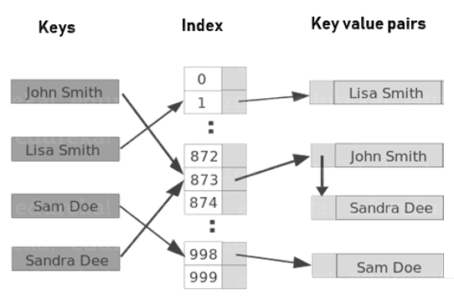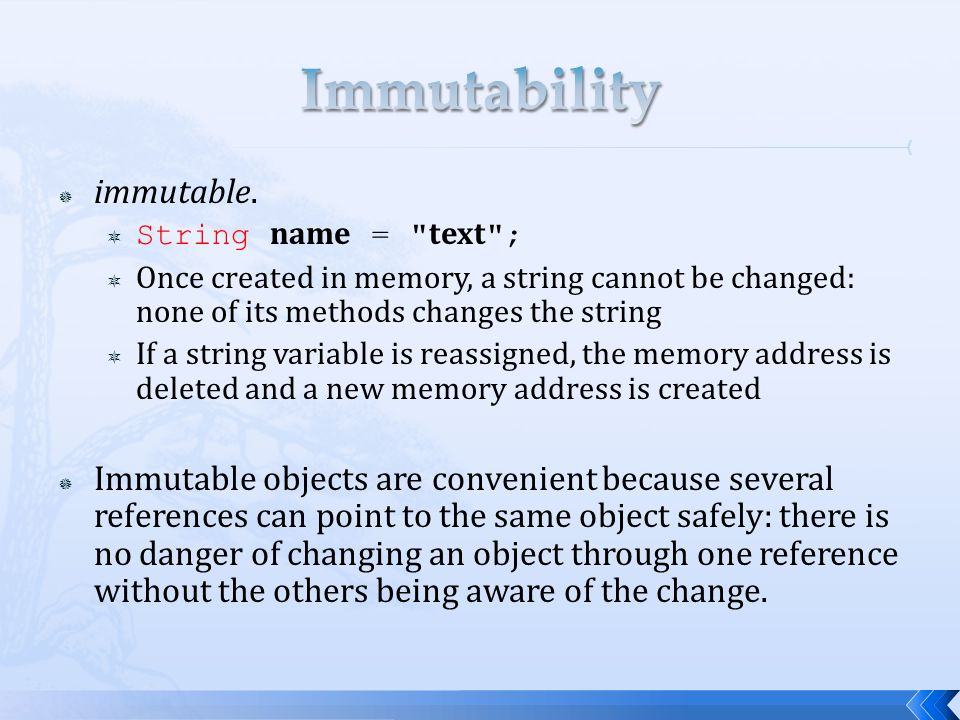Why Are Strings Immutable in Java? Insights into Memory Effectiveness
What Is Unalterable Strings and How It Functions
In the world of programming, recognizing the principle of immutable strings is extremely important for producing robust and safe and secure applications. Unalterable strings describe strings that can not be altered after they are developed, guaranteeing data honesty and predictability within the code. This basic principle plays an essential function in numerous programming languages and supplies a distinct method to handling data. By discovering the intricacies of exactly how unalterable strings operate, one can discover a world of advantages and possibilities that can elevate the top quality and performance of software application development.
The Basics of Unalterable Strings
Immutable strings, as a fundamental idea in programming, are personality sequences that can not be transformed as soon as they are developed. This suggests that when a string is designated a value, that value can not be modified. In languages like Python and Java, strings are unalterable items, causing different implications in regards to memory monitoring and information integrity.
One of the key benefits of unalterable strings is that they offer a complacency in information control. Considering that the web content of an immutable string can not be customized, it makes sure that the initial information continues to be undamaged, minimizing the danger of unintended adjustments during program execution (Why are strings immutable in Java?). This building likewise simplifies debugging procedures, as developers can rely on that once a string is defined, its value will not be unintentionally altered
When a new string is developed based on an existing one, rather than changing the original string, the brand-new worth is stored individually. Overall, understanding the fundamentals of unalterable strings is crucial for grasping shows ideas and enhancing code efficiency.
Advantages of Immutable Strings
Structure upon the protection and effectiveness benefits of unalterable strings, their benefits include boosting code integrity and streamlining simultaneous programs jobs. By being immutable, strings can not be modified after development, which eliminates the threat of unintentional adjustments in the data they keep. This fundamental immutability makes sure that as soon as a string is produced, its value stays consistent throughout the program's implementation, reducing the possibilities of insects brought on by unexpected alterations.
In addition, unalterable strings add to code integrity by making it less complicated to reason regarding the state of a program. Considering that strings can not be changed, developers can rely on that a string will certainly always hold the same value, simplifying debugging and maintenance initiatives. This predictability leads to much more steady and reputable codebases.

Implementation in Shows Languages
Within different programming languages, the unification of immutable strings is a fundamental facet that affects exactly how data is dealt with and adjusted within code structures. The application of unalterable strings varies throughout various programs languages, with each language supplying its own mechanisms to support this idea.

In contrast, languages like C and C++ do not have integrated assistance for unalterable strings. Developers in these languages need to by hand implement immutability by enforcing regulations within their code to stop direct alterations to string items.
Best Practices for Working With Immutable Strings
When taking care of unalterable strings in programs languages like Java and Python, adhering to ideal methods makes certain protected and efficient data control. One of the essential finest techniques is to utilize StringBuilder or StringBuffer as opposed to straight manipulating strings, particularly when handling substantial concatenation procedures. These classes provide mutable options for string manipulation, aiding to prevent unneeded memory allocations and boosting efficiency.
Furthermore, when functioning with delicate data such as passwords or API tricks, it is essential my sources to stay clear of storing them as ordinary text in immutable strings. Using secure storage mechanisms like char selections or specialized collections for dealing with sensitive information assists alleviate safety threats connected with unalterable strings.
Real-world Applications and Examples
Exploring sensible implementations of unalterable strings in different sectors exposes their substantial effect on data honesty and system dependability. In the healthcare market, immutable strings play a critical function in ensuring the security and confidentiality of individual information. By protecting against unauthorized modifications to sensitive info such as medical records and prescriptions, immutable strings help maintain conformity with stringent privacy policies like HIPAA.
Banks additionally gain from the unalterable nature of strings to boost the safety and security of consumer data and transaction records. Immutable strings assist prevent fraudulence and unapproved alterations to economic info, supplying a robust defense versus cyber threats and making sure the depend on and confidence of customers.

Conclusion
In verdict, immutable strings are dealt with and unchangeable sequences of personalities that use benefits such as string security and improved performance in programming. They are carried out in various programs languages to make certain data honesty and safety and security. Ideal techniques for working with unalterable strings consist of preventing direct modifications and using techniques that return new string objects. Real-world applications of immutable strings include information file encryption, caching, and string manipulation tasks.
Unalterable strings refer to strings that can not be altered after they are developed, making sure information honesty and predictability within the my review here code. When a brand-new string is produced based on an existing one, instead than modifying the original string, the brand-new worth is saved individually.In languages like Java and Python, strings are immutable by default, implying that once a string item is produced, its worth can not be altered - Why are strings immutable in Java?. Finest methods for working with immutable strings consist of avoiding straight modifications and making use of techniques that return new string things. Real-world applications of unalterable strings consist of information file encryption, caching, and string adjustment jobs